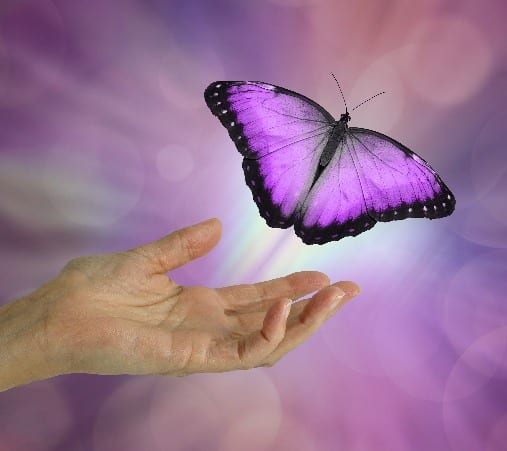Depth Psychology, the Wounded Healer, and the World of Trauma
by Linda Friend, MA, MFT, Healdsburg Holistic Health News, 1999
Because I am a practitioner of Depth Psychology, the archetype of the wounded healer is central to my life. In order for psychology to be “deep” it must be continuously mining the light of the spirit and the recesses of the darker chasms of the human soul. Healing for me is the rebuilding of a broken bridge between these two dimensions of the self.
The awareness, which has become more focused through the women’s movement, of the effects of early childhood abuses – emotional, physical and sexual – has led us to a deeper understanding of how the “split” develops between spirit and soul. When the infant does not experience “a good enough mother,” a mother who can relate consistently and often enough with empathy to the child’s pain while also providing a protective and safe environment, then the infant cannot incarnate. He or she does not come into their own body and as a result, the world itself becomes a frightening place.
 Through the experience of emotional abandonment the child learns to abandon life and so fails to respond to its own needs. Later, in adulthood, happiness and fulfillment in life remain illusive. If the child was physically or sexually abused early on as well as experiencing emotional abandonment then the child creates a “self care system” which is full of persecuting demons. We now know that the victim of trauma continually finds himself or herself in life situations where he or she is re-traumatized.
Through the experience of emotional abandonment the child learns to abandon life and so fails to respond to its own needs. Later, in adulthood, happiness and fulfillment in life remain illusive. If the child was physically or sexually abused early on as well as experiencing emotional abandonment then the child creates a “self care system” which is full of persecuting demons. We now know that the victim of trauma continually finds himself or herself in life situations where he or she is re-traumatized.
Trauma can also happen in adulthood through wars, illness, financial loss, death and divorce, etc. If the initial or early trauma is too severe life passages, which are often traumatic, can trigger a deep depression. Sometimes it somatizes into a physical illness.
To the Jungian school of thought this can be seen as a “creative illness,” mental or physical, which results in the breakdown of the old, egocentric personality and the breakthrough of the individual initiate. “Spiritual emergencies,” mental breakdown, depression, and “creative illness” are all doorways, each one an opening, an opportunity for the individual to reach for their higher potential.
Donald Kalshed, Jungian analyst, defines “trauma” as any experience that causes unbearable psychic pain or anxiety. “Unbearable” means it overwhelms the usual defense measures. In its place the severely traumatized person develops a self-persecutory defense system in their inner psychic life and the rage turned back on the self keeps the person imprisoned in the cycle.
In psychotherapy the client can experience an empathetic and supportive relationship with the therapist and gradually develop and internalize this positive experience and thus be able to mourn the past. Grief over the lost satisfactions and unmet needs of childhood, and the resultant split between spirit and soul-body must be experienced.
Ultimately, the psyche must find a way to allow the grief to unite both hope/faith and disappointment/loss since they are both essential facts of life. In “mourning integration” the attachment to the identification with the persecutory experience can be given up, permitting new positive attachments to be made.
The factors involved in the process are complex. Early on, the traumatized person learns to dissociate as a defense. Cut off from his or her unconscious, this person develops aggrandized fantasies to substitute for life lived in the real world. Only through hard work and much suffering can these defenses be overcome.
Initially, the therapist often is idealized when the client experiences support never experienced in the past, but eventually the therapist must be seen as a person, too: not perfect, but good enough despite any human faults and limitations. Ultimately, the client must also be able to see themselves in this light.
In response to my own early trauma I developed a defensive dissociative process that allowed me to develop my innate highly intuitive self into a highly psychic self. From an early age, I had the uncanny ability to directly access a very magical world and to know profound spiritual truths.
My personal healing journey as a wounded healer has centered around coming more and more into the “real world” of everyday banal reality. Mothering my daughter has been the crucible for my development on the human level. Accepting of my human limitations and integrating that with my ability to access the Divine is where my “mourning integration” is taking me.
It can be very much a struggle to hold both but life would not be fulfilling to me without enchantment, magic, wonder and mystery along with routine and the mundane. Otherwise, if the worlds remain separate, the all too human me has no access to the magical world and the spiritually gifted me has no access to the human suffering and its transformational potential. In the transition between these worlds trauma is transcended, and here wholeness and fulfillment are experienced.





